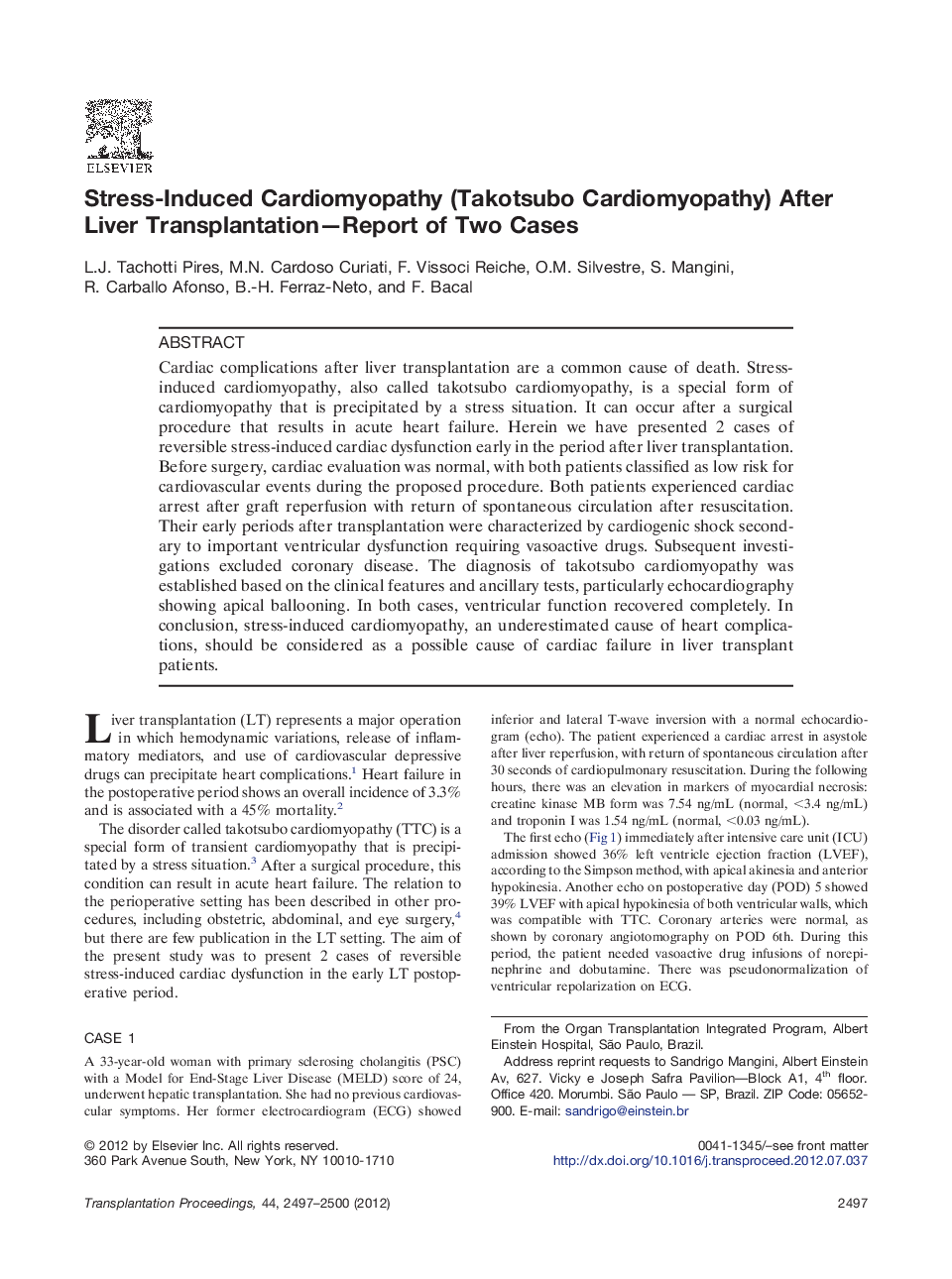| Article ID | Journal | Published Year | Pages | File Type |
|---|---|---|---|---|
| 6248129 | Transplantation Proceedings | 2012 | 4 Pages |
Abstract
Cardiac complications after liver transplantation are a common cause of death. Stress-induced cardiomyopathy, also called takotsubo cardiomyopathy, is a special form of cardiomyopathy that is precipitated by a stress situation. It can occur after a surgical procedure that results in acute heart failure. Herein we have presented 2 cases of reversible stress-induced cardiac dysfunction early in the period after liver transplantation. Before surgery, cardiac evaluation was normal, with both patients classified as low risk for cardiovascular events during the proposed procedure. Both patients experienced cardiac arrest after graft reperfusion with return of spontaneous circulation after resuscitation. Their early periods after transplantation were characterized by cardiogenic shock secondary to important ventricular dysfunction requiring vasoactive drugs. Subsequent investigations excluded coronary disease. The diagnosis of takotsubo cardiomyopathy was established based on the clinical features and ancillary tests, particularly echocardiography showing apical ballooning. In both cases, ventricular function recovered completely. In conclusion, stress-induced cardiomyopathy, an underestimated cause of heart complications, should be considered as a possible cause of cardiac failure in liver transplant patients.
Related Topics
Health Sciences
Medicine and Dentistry
Surgery
Authors
L.J. Tachotti Pires, M.N. Cardoso Curiati, F. Vissoci Reiche, O.M. Silvestre, S. Mangini, R. Carballo Afonso, B.-H. Ferraz-Neto, F. Bacal,
